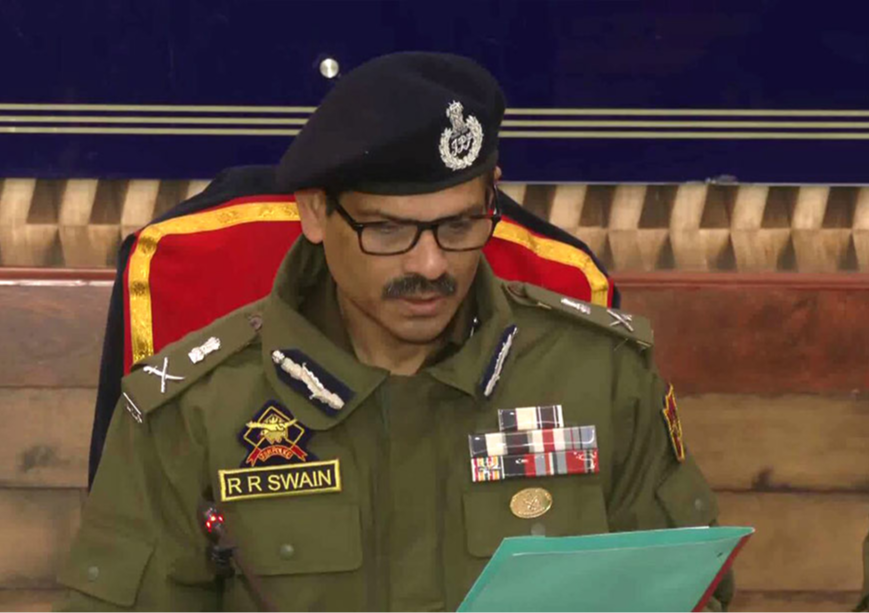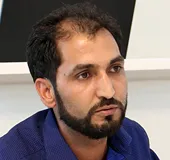-
CENTRES
Progammes & Centres
Location
The continued collaboration between various stakeholders is crucial to effectively foster trust and maintain peace in the Valley.

After drawing criticism earlier for operating under the Public Safety Act (PSA) 1978 before 2019, the Jammu and Kashmir (J&K) police have now embarked on a welcome drive to improve their image among the local population in a proactive manner. A series of refreshing initiatives launched recently (under the leadership of the new J&K Director General of Police (DGP), R.R. Swain), aims to rectify and improve the delicate police-public relations in the Kashmir Valley.
These efforts include weekly public interactions in different district headquarters to foster trust and cooperation and catalyse cordial relationships essential for maintaining peace, security, and effective law enforcement. Following decades of targeted radicalisation and terrorism by Pakistan, such community engagement helps in the better redressal of underlying grievances in Kashmir. It could create harmony and peace, creating a more stable and prosperous future for all Kashmiris.
Following decades of targeted radicalisation and terrorism by Pakistan, such community engagement helps in the better redressal of underlying grievances in Kashmir.
The new DGP has asserted that the direct public hearings “carried out under this initiative will help the police address the shortcomings in their services while establishing a mechanism to “keep a check on the response of the officers at the junior level”.
After 1989, the idyllic Kashmir Valley witnessed a tragic shift as radicalisation and terrorism, fuelled from across the border, took root. This cross-border sponsored violence and armed conflict ripped through its social fabric, shattering traditional societal structures and mechanisms of control. Above all, terrorism dominated by fundamentalist religious ideologies had a profound impact on the police and its allied agencies within the Kashmir valley. The J&K police have taken on the responsibility of fighting terrorism, not just in anti-insurgency operations but also in keeping everyday peace on the streets. More than 1,600 of their officers have sacrificed their lives fighting disintegrative forces backed by Pakistan in J&K.
Terror and separatism, promoted by radical ideologies in Kashmir, wreaked havoc on the traditional ways of informal control, built on family and community values, which held powerful sway over individual behaviour. Through relentless intimidation directed at the police and their families via abduction and murder, the terrorists effectively silenced saner voices in society in the face of escalating violence, radicalisation, and conflict.
The J&K police have taken on the responsibility of fighting terrorism, not just in anti-insurgency operations but also in keeping everyday peace on the streets.
Police officers faced contempt from separatists and terrorist sympathisers. Armed groups targeted officers at mosques, public gatherings, and even during festivities, criticising their role and sometimes even threatening and killing them after retirement. Additionally, regional political leaders indirectly endorsed separatist violence and routinely condemned the police whenever they arrested Over Ground Workers (OGWs) or suspected terrorists under the PSA. There was also an allegation that J&K police were complicit in acts of terror during the high point of terrorist activities in the valley. Despite these challenges, the J&K police stood defiant and resilient against Pakistan-backed terrorism. Their courage and dedication were a vital bulwark against chaos, conflict, terrorism, intimidation, and separatism.
Since the scrapping of Articles 370 and 35A, there has been a change in popular outlook in the Valley even though the spoilers from across the LoC are trying their best to muddy the waters once again. However, it is encouraging to see J&K police and security forces leveraging the changes on the ground and making significant strides in wiping out terrorists and cutting off their sources of funding. Terrorism and terror-related incidents are at an all-time low thanks to growing cooperation between security forces including the police and forces in civil society.
On 31 December 2023, there were only 31 local terrorists in the Union Territory (UT) of J&K, including four in Jammu’s Kishtwar district and 27 in Kashmir. Reduced terrorism and prevailing peace have not made the police complacent. The J&K police have rather taken it as an opportune moment to build bridges with the community through innovative weekly public interactions, where locals and police can voice their concerns. While the online grievance system is already a hit, the weekly community engagement programme has taken things to the next level, earning praise from the community, especially in rural areas.
The J&K police have rather taken it as an opportune moment to build bridges with the community through innovative weekly public interactions, where locals and police can voice their concerns.
The new DGP, from the J&K cadre and a student of sociology, has leveraged his extensive experiences in J&K and the centre while launching weekly public outreach meetings after taking office. The first gathering, held at the Srinagar police headquarters on 11 November 2023, welcomed both J&K police officers and the public to voice their concerns and suggestions. So far, the J&K top cop has presided over eight such outreach programmes in different district headquarters and provincial zones, interacting with 2,590 people and recording 1,584 public grievances. While 62 grievances were resolved on the spot, prompt action was initiated for the other more complex grievances.
Such a public outreach initiative has made policing more transparent in the UT. It highlights the seriousness of the J&K police in understanding the issues and public grievances, including complaints, investigations, etc. and initiating their prompt resolution. While there could be procedural delays in addressing some grievances depending on the complexities involved, the ultimate endeavour is the timebound redressal of all genuine grievances and complaints.
The DGP is known amongst the people for his commitment to duty, honesty and allergy towards corruption, which is discussed daily by the youth, and the public has openly hailed the public outreach programme.
One of the main objectives of the outreach drive is to facilitate better policing, win the trust of the community, and streamline the activities of individuals with deviant behaviour, which is rising among the youth due to increased drug addiction and narcoterrorism.
With Islamabad resorting to narcoterrorism by smuggling large consignments of drugs into the Kashmir Valley to finance its terror activities, J&K has seen a 2,000-percent rise in heroin abuse in the last five years. Narcoterrorism has emerged as the biggest security challenge for the local police and as a grave national security threat. While the J&K police, in coordination with other security agencies, have successfully curbed terrorism and terror-related incidents, the growing drug menace has degenerated the Kashmiri youth and destroyed the centuries-old socioeconomic and sociocultural fabric of the society.
Narcoterrorism has emerged as the biggest security challenge for the local police and as a grave national security threat.
In a significant crackdown on drug trafficking, the J&K police registered 1,021 cases under the Narcotic Drugs and Psychotropic Substances (NDPS) Act and apprehended 1,700 drug peddlers, including 138 notorious offenders in 2022. In 2023, just in the Shopian and Baramulla districts, authorities arrested an additional 578 individuals (126 in Shopian and 452 in Baramulla) under the NDPS Act, including some hardened criminals. Subsequently, to choke the finances raised through narcoterrorism, the J&K administration started attaching properties of drug peddlers.
Still, drug addiction remains an area of the local administration’s biggest concern. Since Pakistan has taken up narcoterrorism to fund terrorism in the Kashmir Valley in the face of a tough anti-terror stand by the local police and other security agencies, it will only make the resolution of this growing menace more challenging. Trust-building through concerted, meaningful and result-oriented public engagement gains even more significance.
The public outreach effort being undertaken by the J&K police is a much-needed internal interlocution process to help sanitise the traditional social mechanisms and reinvigorate the social control customs by empowering senior citizens, civil society members and village-level communities. These measures will help synergise J&K’s traditional tools of social control with formal policing systems in the war against drugs and terrorism. Continued vigilance and collaboration between various stakeholders, including law enforcement agencies, community leaders, and social welfare organisations, are crucial to effectively address this complex issue, defeat the Pakistani gameplan and safeguard the future of Kashmiri youth and society.
Ayjaz Wani is a Fellow with the Strategic Studies Programme at the Observer Research Foundation.
The views expressed above belong to the author(s). ORF research and analyses now available on Telegram! Click here to access our curated content — blogs, longforms and interviews.

Ayjaz Wani (Phd) is a Fellow in the Strategic Studies Programme at ORF. Based out of Mumbai, he tracks China’s relations with Central Asia, Pakistan and ...
Read More +